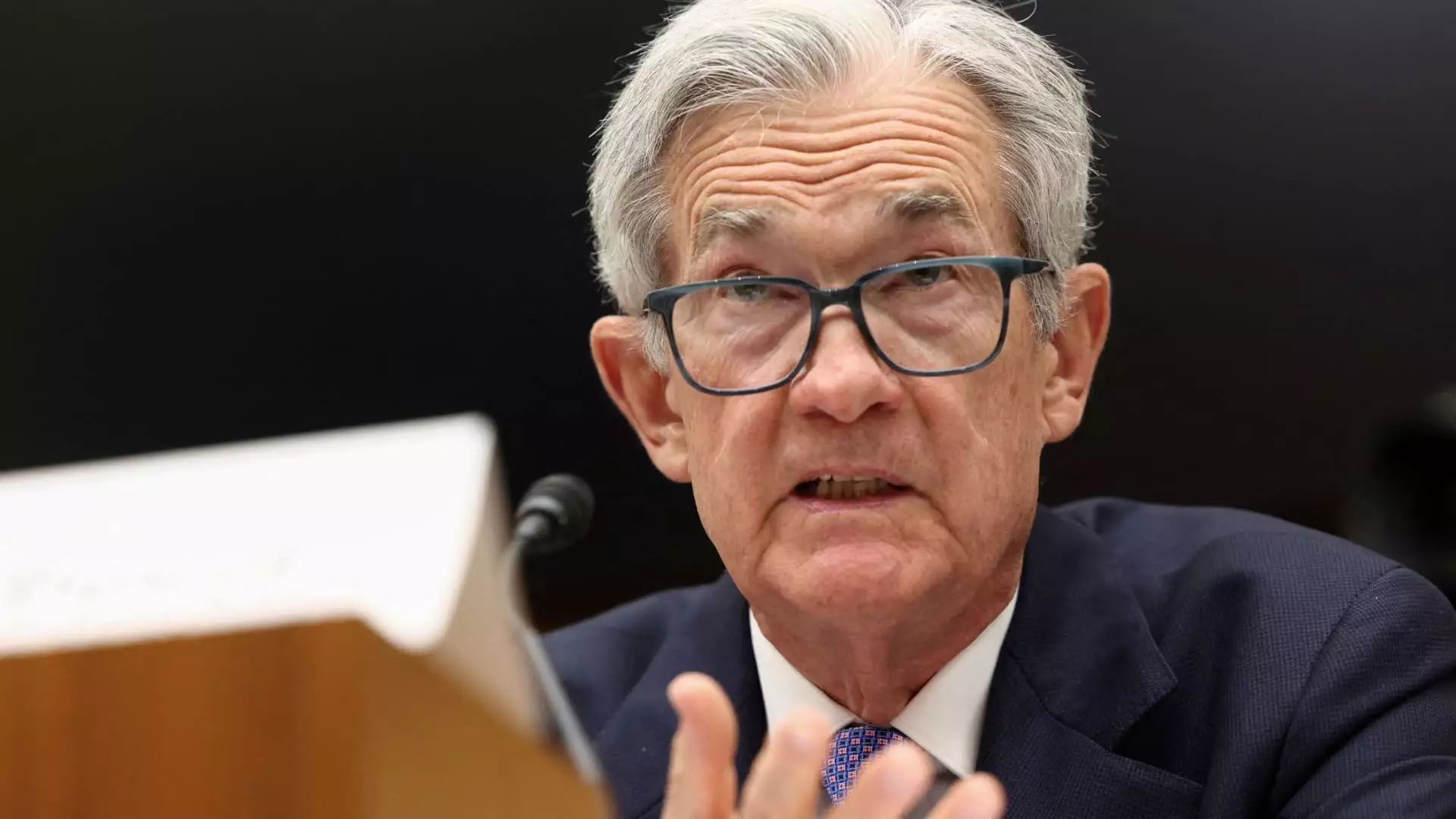In recent months, the Federal Reserve finds itself ensnared in a relentless political storm, with the Trump administration aggressively criticizing its management and policy decisions. The administration’s public attacks, led by figures like Office of Management and Budget Director Russell Vought, portray the Fed as bureaucratically wasteful and disconnected from the broader economic needs of Americans. While criticisms of government spending may seem justified in a broader fiscal context, the politicization of the Federal Reserve’s internal projects reveals a deeper attempt to undermine its independence—a fundamental pillar of its credibility and effectiveness.
The administration’s targeted focus on a $2.5 billion renovation project underscores this danger. To outsiders, the renovations may seem like an unnecessary luxury, especially amid economic uncertainties. But to dismiss them as extravagant ignores the significance of maintaining a resilient, modernized central bank infrastructure. What’s glaring, however, is the administration’s willingness to weaponize fiscal critique as a means of exerting political control over a body designed to operate free of partisan influence. This highlights an alarming trend: the erosion of institutional independence under the guise of fiscal responsibility and transparency.
The Fed’s Subtle Counterattack and Its Implications
Rather than remaining silent, the Federal Reserve recently issued a detailed “Frequently Asked Questions” page defending its renovation project and reaffirming its independence. This move is telling; it signals the Fed’s recognition of the escalating political pressure and a desire to clarify misconceptions, especially those propagated by powerful political figures. By openly addressing the specific claims—such as denying the existence of VIP dining rooms and emphasizing the preservation of historic buildings—the Fed subtly rebuffs accusations of excessiveness and maintains control of its narrative.
The resistance extends beyond mere messaging. It demonstrates a strategic effort by the Fed to safeguard its autonomy in the face of attempts to influence or undermine its operations. The timing of this counteroffensive is no coincidence—it coincides with an emboldened push from political figures seeking to discredit the central bank’s decisions, particularly its monetary policy stance—which the administration perceives as insufficiently accommodative. The Fed’s transparent response underscores its belief that its independence is vital not only for economic stability but also for preserving the integrity of its decision-making process.
Is this Political Tug-of-War Justified or Detrimental?
From a centrist liberal perspective, the ongoing attacks on the Federal Reserve raise serious concerns about the future of American economic governance. While holding institutions accountable is necessary, weaponizing fiscal debates to threaten independence jeopardizes the delicate balance designed to insulate monetary policy from short-term political whims. This politicization risks turning a body meant to manage inflation, employment, and financial stability into a pawn in partisan disputes.
The claim that the Fed’s renovations are frivolous overlooks the critical role infrastructure plays in ensuring operational efficiency and institutional resilience. Modern central banks require secure, efficient spaces to perform their core functions, especially as technological and geopolitical complexities increase. Labeling such upgrades as unnecessary extravagances is not only shortsighted but also endangers the integrity of economic policymaking by undermining confidence in an institution that, over decades, has proven to be a stabilizing force amidst turbulent financial markets.
Moreover, suggesting that the Fed is mismanaging funds based on a single renovation project misses the broader truth. The Fed, self-funded through interest income and fees, is an example of prudent fiscal management, operating outside taxpayer funding. Politicians often overlook this autonomy when using budget overruns or project costs as tools to attack its credibility. This conflation not only distorts facts but also fuels distrust in a vital institution that must remain independent if it is to successfully guide the economy through future crises.
A Call for Respect and Independence in Economic Governance
The ongoing political assault on the Federal Reserve makes clear that its independence is under siege in an era where financial and political lines increasingly blur. While oversight and accountability are essential, these must not come at the expense of institutional independence—especially when the stakes involve long-term economic stability. The central bank’s quiet but firm defense of its renovations and operational integrity underlines a crucial principle: that monetary policy and institutional independence should remain immune to transient political agendas.
In a functioning democracy, checks and balances are vital. But when political actors weaponize criticism to diminish an independent institution, it risks destabilizing the delicate ecosystem necessary for economic resilience. The Federal Reserve’s recent actions reflect a cautious but assertive stance to preserve its core mandate, recognizing that an attack on its autonomy is ultimately an attack on the economic well-being of the nation. Such resistance—done subtly and strategically—may be the only way to safeguard the integrity of American monetary policy in the face of growing partisan tumult.



Leave a Reply